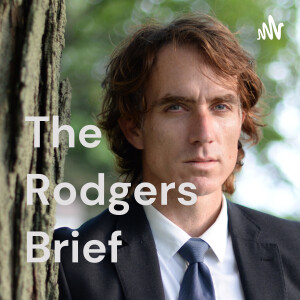
- Podcast Features
-
Monetization
-
Ads Marketplace
Join Ads Marketplace to earn through podcast sponsorships.
-
PodAds
Manage your ads with dynamic ad insertion capability.
-
Apple Podcasts Subscriptions Integration
Monetize with Apple Podcasts Subscriptions via Podbean.
-
Live Streaming
Earn rewards and recurring income from Fan Club membership.
-
Ads Marketplace
- Podbean App
-
Help and Support
-
Help Center
Get the answers and support you need.
-
Podbean Academy
Resources and guides to launch, grow, and monetize podcast.
-
Podbean Blog
Stay updated with the latest podcasting tips and trends.
-
What’s New
Check out our newest and recently released features!
-
Podcasting Smarter
Podcast interviews, best practices, and helpful tips.
-
Help Center
-
Popular Topics
-
How to Start a Podcast
The step-by-step guide to start your own podcast.
-
How to Start a Live Podcast
Create the best live podcast and engage your audience.
-
How to Monetize a Podcast
Tips on making the decision to monetize your podcast.
-
How to Promote Your Podcast
The best ways to get more eyes and ears on your podcast.
-
Podcast Advertising 101
Everything you need to know about podcast advertising.
-
Mobile Podcast Recording Guide
The ultimate guide to recording a podcast on your phone.
-
How to Use Group Recording
Steps to set up and use group recording in the Podbean app.
-
How to Start a Podcast
-
Podcasting
- Podcast Features
-
Monetization
-
Ads Marketplace
Join Ads Marketplace to earn through podcast sponsorships.
-
PodAds
Manage your ads with dynamic ad insertion capability.
-
Apple Podcasts Subscriptions Integration
Monetize with Apple Podcasts Subscriptions via Podbean.
-
Live Streaming
Earn rewards and recurring income from Fan Club membership.
-
Ads Marketplace
- Podbean App
- Advertisers
- Enterprise
- Pricing
-
Resources
-
Help and Support
-
Help Center
Get the answers and support you need.
-
Podbean Academy
Resources and guides to launch, grow, and monetize podcast.
-
Podbean Blog
Stay updated with the latest podcasting tips and trends.
-
What’s New
Check out our newest and recently released features!
-
Podcasting Smarter
Podcast interviews, best practices, and helpful tips.
-
Help Center
-
Popular Topics
-
How to Start a Podcast
The step-by-step guide to start your own podcast.
-
How to Start a Live Podcast
Create the best live podcast and engage your audience.
-
How to Monetize a Podcast
Tips on making the decision to monetize your podcast.
-
How to Promote Your Podcast
The best ways to get more eyes and ears on your podcast.
-
Podcast Advertising 101
Everything you need to know about podcast advertising.
-
Mobile Podcast Recording Guide
The ultimate guide to recording a podcast on your phone.
-
How to Use Group Recording
Steps to set up and use group recording in the Podbean app.
-
How to Start a Podcast
-
Help and Support
- Discover

This week saw the final two days of evidentiary proceedings in the Desmond Fatality Inquiry, bringing to a partial close a process which opened May 21, 2019, and where hearings began in earnest in January, 2020. The stark contrasts between how the Desmond Inquiry has unfolded, and how the Mass Casualty Commission proceedings have started, brought me back to the opening remarks of Desmond Inquiry presiding Judge, Provincial Court Judge Warren Zimmer. In his remarks, Judge Zimmer touched on important legal distinctions between a fatality inquiry and a public inquiry, and some of those remarks are helpful for understanding what is now taking place in the MCC. In particular, these remarks can help us understand how the legal nature of the Commission not only allows for, but indeed invites, appropriate political interference. The Commission is entirely a creature of the federal and provincial cabinets, reports to them, and can be canceled by them at any time. And, unlike a sitting Judge, the Commissioners have no legal guarantees of their ultimate independence. In thinking about whether it may be appropriate for the government to intervene in the Commission, consider that the Commission was initiated by the previous provincial Liberal government, under the direction of then Justice Minister, Mark Furey, and then Liberal federal Public Safety Minister, Bill Blair. These Ministers initially wanted merely a “review” to take place, and only agreed to call an inquiry after being confronted with overwhelming public pressure to do so. So far, however, the presentation of evidence, and the tightly controlled access to information in the Commission process, gives it the look and sense of a review, rather than pure inquiry process. So far, we have only heard the Commission’s unchallenged version of events, and it is not clear that all available information has been disclosed to the parties. The Mass Casualty Commission has not been like the Desmond Inquiry, where all evidence was provided to the parties in advance, and relatively unfettered cross examination of witnesses has been routinely featured throughout. Should the new provincial government determine that the MCC is not fulfilling its mandate, or is misinterpreting the direction given in the Order in Council, it may appropriately feel compelled to intervene. Given the comments from Minister Fraser, it may be expected that the federal government would support such an intervention. There is nothing conceptually improper about doing so, should the Commission proceed in a manner that is not in the public interest.
More Episodes
Create your
podcast in
minutes
- Full-featured podcast site
- Unlimited storage and bandwidth
- Comprehensive podcast stats
- Distribute to Apple Podcasts, Spotify, and more
- Make money with your podcast
It is Free
- Privacy Policy
- Cookie Policy
- Terms of Use
- Consent Preferences
- Copyright © 2015-2026 Podbean.com





